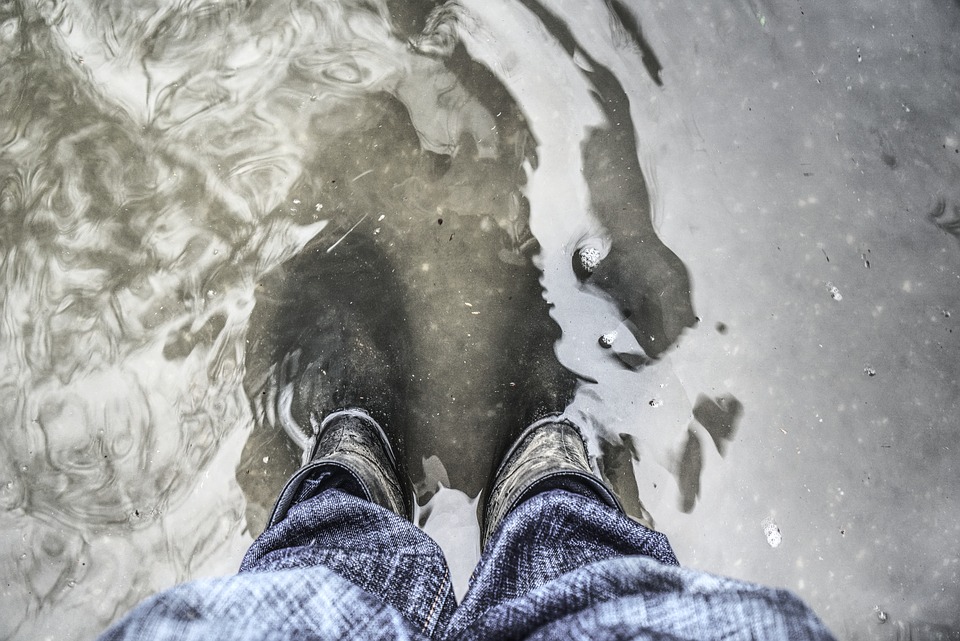
Flooding Season Upon Us Once Again
 The weather is changing and with the snowbanks beginning to melt away and rain becoming a more common occurrence in the forecast, it is time to evaluate whether your home is prepared for the increase in water and if you have taken preventative steps against flooding effecting your home and family. To give you an idea of the areas you should check before you’re faced with a yard or basement full of water, we’ve put together some tips to help you prevent water damage and flooding in and around your home. Eaves troughs and downspouts. Be sure to clear your eaves troughs and downspouts of leaves, debris and ice so water can easily flow away from your home. Also ensure your downspouts extend well away from the outer walls of your home. Grade your property. If you notice that water pools around your home and/or property, it is a good idea to get your property graded appropriately to direct that water away. Check your foundation. If you notice any significant cracks in your foundation and/or see water in your basement and believe it is coming from outside through your foundation, it is best to have this inspected by a licensed professional before it could become a larger problem. Once inspected, any issues can be located and repaired to prevent further water from getting in. Check your windows and doors. Inspect for cracks or any other damage which may affect the water-tight seal of all ground-level windows and doors around your home. Install or inspect sump pump. If you do not already have a sump pump, consider having one installed and connect it to a generator so it can be operated in the event of a power outage. If you already have a sump pump, be sure to perform regular maintenance to ensure it is performing optimally. Although these tips may be helpful for some, they are not meant as a guarantee to prevent flooding or water damage for all homes. If you are concerned about water damage or flooding in or around your home, contact a licensed professional to inspect your home and property. It is also important to note that home insurance policies vary, and you should consult with your home insurance company about any conditions, restrictions and exclusions regarding home flooding and water damage in your home insurance policy.
The weather is changing and with the snowbanks beginning to melt away and rain becoming a more common occurrence in the forecast, it is time to evaluate whether your home is prepared for the increase in water and if you have taken preventative steps against flooding effecting your home and family. To give you an idea of the areas you should check before you’re faced with a yard or basement full of water, we’ve put together some tips to help you prevent water damage and flooding in and around your home. Eaves troughs and downspouts. Be sure to clear your eaves troughs and downspouts of leaves, debris and ice so water can easily flow away from your home. Also ensure your downspouts extend well away from the outer walls of your home. Grade your property. If you notice that water pools around your home and/or property, it is a good idea to get your property graded appropriately to direct that water away. Check your foundation. If you notice any significant cracks in your foundation and/or see water in your basement and believe it is coming from outside through your foundation, it is best to have this inspected by a licensed professional before it could become a larger problem. Once inspected, any issues can be located and repaired to prevent further water from getting in. Check your windows and doors. Inspect for cracks or any other damage which may affect the water-tight seal of all ground-level windows and doors around your home. Install or inspect sump pump. If you do not already have a sump pump, consider having one installed and connect it to a generator so it can be operated in the event of a power outage. If you already have a sump pump, be sure to perform regular maintenance to ensure it is performing optimally. Although these tips may be helpful for some, they are not meant as a guarantee to prevent flooding or water damage for all homes. If you are concerned about water damage or flooding in or around your home, contact a licensed professional to inspect your home and property. It is also important to note that home insurance policies vary, and you should consult with your home insurance company about any conditions, restrictions and exclusions regarding home flooding and water damage in your home insurance policy.

